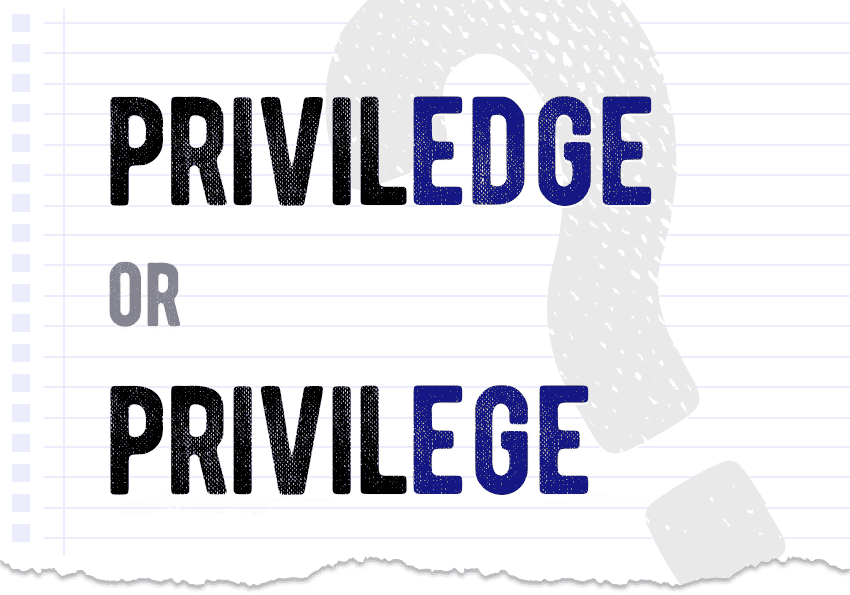Priviledge or privilege — which spelling is correct?
Even professional writers find themselves in a genuine dilemma: which spelling is correct: privilege or priviledge? Thank goodness for autocorrect, at least in this case. However, sometimes the technology is not available, and your dictionary is nowhere to be found. Luckily, after reading this article, there will be no more doubts.

Priviledge or privilege — which version is incorrect?
Privilege is the correct version of the word. The frequent misspelling of the word results from the fact that the ending –ledge is correct for some other words, for example, knowledge or sledge. Interestingly, the spelling priviledge was once acceptable, but these days this version is treated as a misspelling.
Privilege — what does it mean?
The meaning of the noun privilege is “a right or immunity granted as a benefit, advantage, or favour, sometimes attached to a special position”, and the verb privilege means “to give an advantage to one person or group” or “to give something more importance over others”.
Privilege — etymology
The term privilege derives from Latin privilegium and was recorded first in Old English as a Latin word. Its contemporary form appeared in the 12th century, from Old French privilege, meaning “right, priority”. It is worth noting that a similar word, pravilege, was also used in Middle English. It stemmed from Medieval Latin and meant “an evil right or privilege”.
Privilege or priviledge — let’s see if famous writers know the difference
Oh, I wouldn’t mind, Hazel Grace. It would be a privilege to have my heart broken by you.
John Green, The Fault in Our Stars, 2012
When you arise in the morning think of what a privilege it is to be alive, to think, to enjoy, to love …
Marcus Aurelius, Meditations, 180 AD
‘Everybody has to feel superior to somebody’, she said. ‘But it’s customary to present a little proof before you take the privilege’.
Truman Capote, Breakfast at Tiffany’s, 1958


